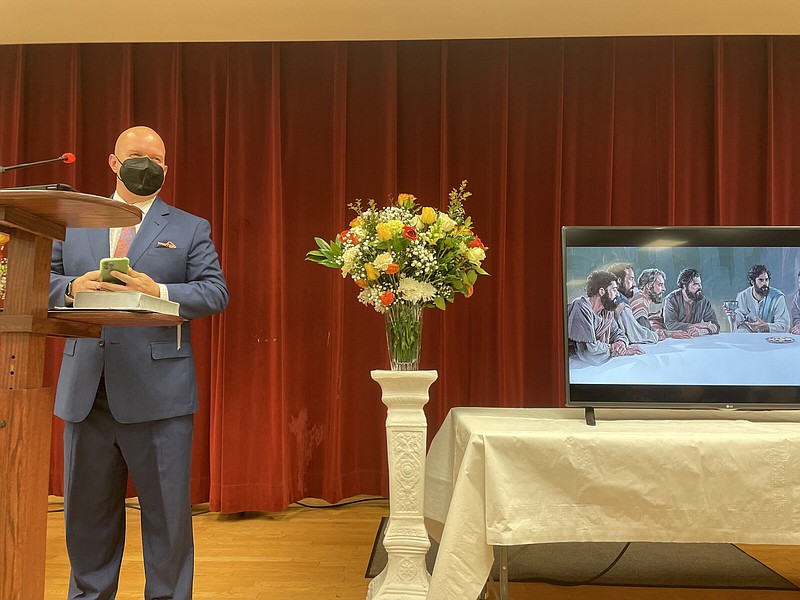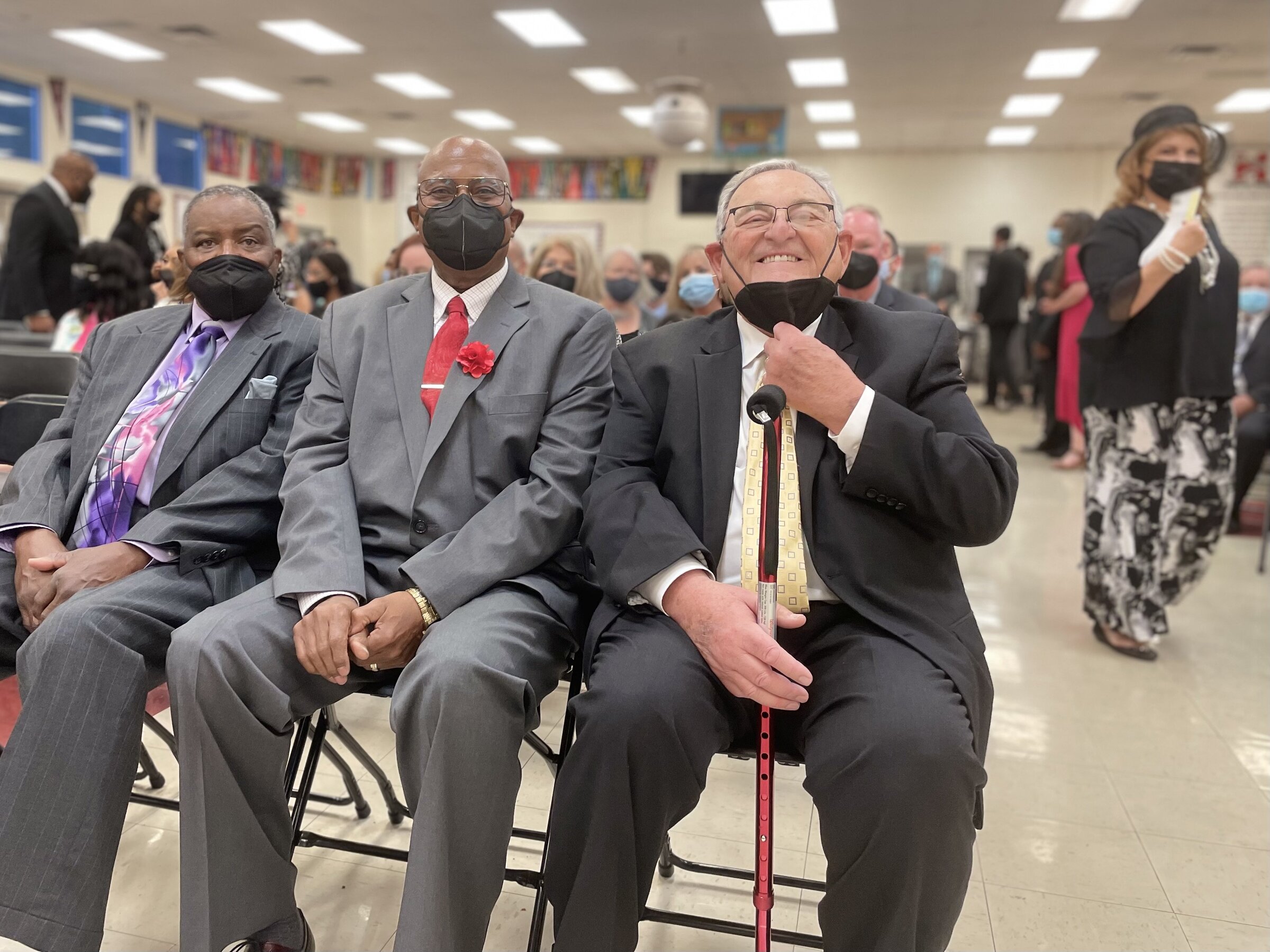Jehovah's Witnesses reject the traditional church calendar, with its saint days and feast days, Lenten sacrifices and Easter celebrations.
They do, however, commemorate the Last Supper each year, noting that Jesus explicitly instructed his followers to do so.
Since the Kingdom Halls aren't large enough to hold everyone, they rent extra space so that everyone can be accommodated, including school cafeterias and Boys and Girls Clubs.
"For us, it's the most important event of the year," said Scott Smith, a Witnesses public communications representative from Conway.
On Tuesday, Witnesses will gather by the thousands across Arkansas to observe what they call "The Memorial of Christ's Death" or "The Lord's Evening Meal."
Natural State services will be held in English, Spanish, Marshallese, Chinese and Tagalog, Smith said.
The music is played and the lyrics appear on screens. Regardless of the language or the country, the melodies are the same.
Worldwide, more than 20 million people are expected to meet after sunset to pray and distribute the elements -- unleavened bread and unadulterated red wine.
Unlike the disciples, most will pass the food and drink to their neighbor without consuming either.
Jehovah's Witnesses believe that the ritualistic meal was held for the first time on the 14th day of Nisan in the Jewish calendar, the eve of the Passover nearly 2,000 years ago.
So they continue to mark it on the same day of the month rather than the same day of the week: Liturgically-minded Protestant and Catholic Christians, on the other hand, commemorate it each year on Holy Thursday (sometimes referred to as Maundy Thursday), one day before Good Friday.
The King James Version of the Bible, completed in 1611, refers to the meal as a "supper."
The New World Translation, published by the Witnesses in 1950, calls it an "evening meal."
Among Witnesses, references to the Memorial as ''the Last Supper'' or ''Lord's Supper'' have become less common in recent years.
According to biblical accounts, on the eve of the Crucifixion, Jesus broke bread and gave it to his disciples, later giving them wine as well.
One signified his body, the other his blood, Witnesses believe.
"In Luke chapter 22, Jesus said simply to his apostles, 'Do this in remembrance of me.' That's when he instituted the Lord's Evening Meal," said Robert Hendriks, official spokesman for the Jehovah's Witnesses in the United States.
The early New Testament church obeyed the command. 1 Corinthians 11:26, in the New World Translation, states that "whenever you eat this loaf and drink this cup, you keep proclaiming the death of the Lord, until he comes [again]."
Last year, nearly 20 million people attended the Memorial worldwide, including 19,961 in Arkansas, Hendriks said.
Roughly 1 out of every 1,000 attendees actually partakes.
Witnesses believe that all followers of Christ should commemorate the evening meal, but that the emblems should only be consumed by those destined to rule and reign with Jesus in heaven some day.
The book of Revelation sets that number at 144,000 people, Witnesses believe.
"Many people think that ... [Jehovah's Witnesses] believe that only 144,000 will actually gain salvation. No. We believe millions, if not billions, will be saved, but only 144,000 will rule in the heavens," Hendriks said.
Most faithful Witnesses will spend eternity in a peaceful earthly paradise, he added.
1 Corinthians 11:27 warns against eating the loaf or drinking the cup of the Lord "unworthily."
But the decision of whether to partake is left to the individual.
"It's between them and Christ and their God," Hendriks said.
Witnesses have been commemorating the Lord's Evening Meal since 1876.
They refer to Jesus as both "Savior" and "Son of God" but teach that he is not "Almighty God" and that "there is no scriptural basis for the Trinity doctrine."
There are currently about 1.2 million members, known as "publishers," in the United States.
Covid-19 prevented Witnesses from gathering for the Memorial in 2020 and 2021.
Members and adherents were able to participate remotely. Many made their own unleavened bread. The organization provided recipes to those who needed them.
With 8.7 million Jehovah's Witnesses around the world, they are a global force. While referring to Jesus as the founder of their organization, they say the modern-day movement arose from a small group, who referred to themselves as Bible Students living near Pittsburgh toward the end of the 19th century.
Since 1931, they have referred to themselves as Jehovah's Witnesses.
Initially, it was commonplace for Witnesses to not only observe the commemoration but to partake of the bread and wine as well.
That changed dramatically as the Witnesses gained a better understanding of the Scriptures, Hendriks said.

